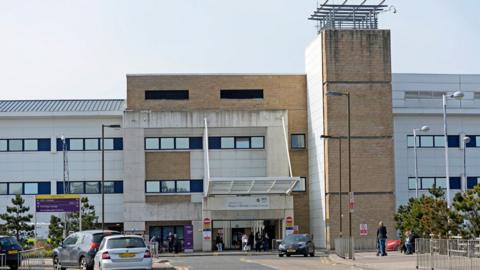The triage and assessment unit looks after pregnant women requiring urgent care and sees about 1,200 women each month.
The whistleblowing report found that patient safety was being compromised by a series of factors, including staff shortages which were leading to delays in women accessing treatment.
It also said women were being seen by inappropriately qualified staff and that there was a "toxic relationship" between managers and midwives.
The report concluded: "There is no dispute that there have been safety concerns, near misses and actual adverse outcomes for women and babies."
It describes situations where the support provided was "inadequate" and midwives felt "professionally compromised" because of a staffing shortfall:
Investigators found managers incorrectly claimed the unit was well staffed, while "the majority of midwives said the department was short-staffed on most shifts, with the least experienced staff responsible for ongoing care of a significant number of women at the same time".
An analysis of rotas found that there was regularly a staffing shortfall. Midwives described actual and "near miss" safety concerns when staffing levels were compromised.
